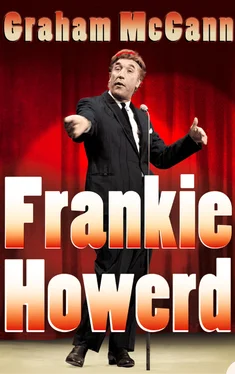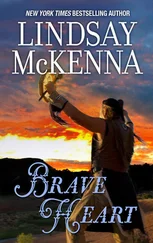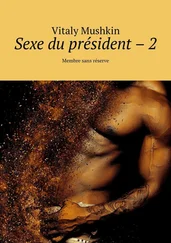Similarly, it did not matter to Fields if the odd person took offence when he knocked back one too many treble measures of bourbon, mumbled something insulting about his wife or aimed a large boot at little Baby LeRoyâs backside. Like Benny, Fields was more than happy to use all of his various foibles, failures and flaws â whether they were real and exaggerated or imaginary and stylised â rather than try, like the more typical kind of comedian, to hide and deny them. The only thing that mattered to this exceptional pair of performers was the number of laughs they were able to generate. It was this attitude â a subtly smart, self-mocking and grown-up attitude â that Howard (the hypocritical âfriendâ of elderly deaf pianists) was ready to emulate.
Turning his attention to the delivery of his material, Howard not only recognised the debt he already owed to George Robey, but also anticipated the impact to be had from studying the style of a more recent favourite, Sid Field. What both of these performers did was to dominate an audience through indirection, preferring to coax the laughs out rather than waiting for them to be handed over on a plate.
Robey had shown how much funnier a clown could be when he acted as if he was labouring under the illusion that he was not actually a clown. Once the first ripple of laughter had rolled towards him from over the stalls, he would stick his hands stiffly on his hips, hoist his nose high up in the air and then snort censoriously: âKindly temper your hilarity with a modicum of reserve.â When this act of pomposity summoned up an even louder and deeper splash of derision, he would, with an air of mounting desperation, urge the audience to â Desist! â â which in turn, of course, would succeed only in prompting an even bigger and more gloriously anarchic burst of playful mockery.
More recently, Howard had been deeply impressed by the classy comic artistry of Sid Field. Like Howard, Field was a peculiar mixture, on stage, of lumbering masculinity and camp effeminacy, of working-class toughness and middle-class gentility â the critic Kenneth Tynan summed it up rather nicely when he likened it to a strangely effective blend âof nectar and beerâ. 20
Besides having the knack of being able to act with his entire body â with his nimble hands and knees as well as his brightly expressive face â Field also had a wonderfully playful way with words and sounds and idioms. Ranging freely from coarse, back-throated cockney, through the nasal, drooping rhythms of his native Brummie, to the tight-necked, tongue-tip precision of a metropolitan toff, he turned common words and simple phrases into a special repertory of colourful comedy characters.
Howard adored the way that Field (a master parodist of effete behaviour) needed only to cry a single âBe- ooo -tiful!â or cluck a quick âDonât be so fool-haar-day! â to trigger yet another gush of giggles. He warmed to the performer even more when Field paused to interact with the members of the pit orchestra (âAnd how are yooo today? R-r-r- reasonably well, I hoop?â), boast to an unseen acquaintance in the wings (âDid you heah me, Whittaker?â) and bridle at an imagined insult aimed at him from the audience (â Oh! How very, very, dare you!â). Watching him, Howard felt that he had found a kindred spirit, and drew encouragement to follow suit.
When it came to deciding on how he would look, however, Howard had already arrived at some firm and subversive ideas all of his own. Aside from adopting the old Max Miller trick of applying plenty of blue to the lids âto help the eyes sparkleâ, 21 he eschewed the custom of caking the face in layers of make-up. He also elected to do without any of the formal, garish or gimmicky styles of dress.
He chose instead to wear an ordinary, off-the-peg lounge suit and plain tie. The colour of both, he decided, would always be a medium shade of brown, because he thought that this could be relied on to be âa colour that didnât intrudeâ: âItâs warm and neutral and man-in-the-street anonymous,â he reasoned. âIf people did notice my suit or tie I thought it would mean that they were not concentrating on my face.â 22
He also resolved to dispense with the way that other comedians âframedâ each performance by making a formal entrance and exit. There would be no opening announcements or closing bows from him : he would simply walk straight up to the footlights and start talking â âNo. Ah. Ooh, Iâve had such a funny day, today, have you?â â and then, when he had finished, walk off again in a similar fashion, without ever signalling the presence of quotation marks.
The key thing, he believed, was to create the impression âthat I wasnât one of the cast, but had just wandered in from the street â as though into a pub, or just home from work. And Iâd emphasise the calculated amateurishness of my presence and dress with a reference to the rest of the acts on the bill: âIâm not with this lot ⦠Ooh no, Iâm on me own!ââ 23
With all of this, he was almost ready: an unusually informal, ordinary-looking, everyday kind of clown with a plausibly flawed personality, a deceptively artful style of delivery and a rare gift for engaging an audience. There was just one further thing, he felt, that still needed to be done: he needed to change his name. He knew that he was stuck with âFrankieâ, but he decided, none the less, to alter the spelling ofâHowardâ. There were, he was convinced, simply too many other, far more famous, Howards about.
It was, in fact, an erroneous belief: in the absence of both Leslie (the London-bom Hollywood actor who had perished during the war) and Sydney (the portly Yorkshire comedian who had just died in June 1946), there was arguably only one notable Howard present in British show business at this time whose name had truly impinged on the public consciousness â and that was the actor Trevor Howard, who had only recently shot to stardom after playing the romantic lead in the 1945 movie, Brief Encounter .
Even one solitary Trevor, however, appeared to be one too many for Frankie, who proceeded to change the spelling of his surname from âHowardâ to âHowerdâ. Showing himself to be a surprisingly shrewd (if somewhat over-analytical) self-promoter, he reasoned that the minor alteration, aside from helping to distinguish him from the odd stem-feced matinée idol, would have âthe added advantage of making people look twice because they assumed it to be a misprintâ. 24
Along with the name change came the invention of what in those days was called âbill matterâ (the slogan that accompanied the name displayed on the poster). There were plenty of examples to study: Max Miller was âThe Cheeky Chappieâ; Albert Modley âLancashireâs Favourite Yorkshiremanâ: Vera Lynn âThe Forcesâ Sweetheartâ; Donald Peers âRadioâs Cavalier of Songâ; Robb Wilton âThe Confidential Comedianâ; and Sid Field âThe Destroyer of Gloomâ. Frankie Howerd, after much careful thought, came up with an epithet all of his own: âThe Borderline Caseâ. 25
Now, at last, everything really was well and truly in place. The professional career could commence.
It began in his native Yorkshire, at the massive and Moorish Empire Theatre in Sheffield, on the night of Wednesday, 31 July 1946. Even though he was placed right down at the base of the bill, the act that was âFrankie Howerd: The Borderline Caseâ proved impossible to miss. It was not just that he was different. It was also that he broke every rule in the book â literally.
Читать дальше












